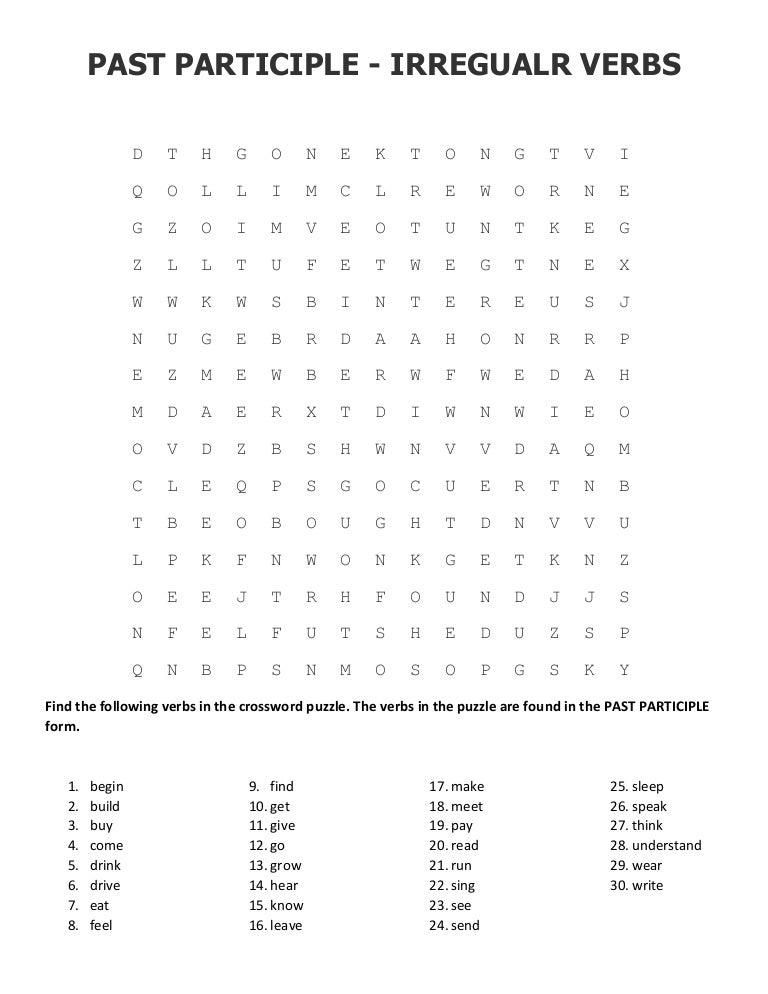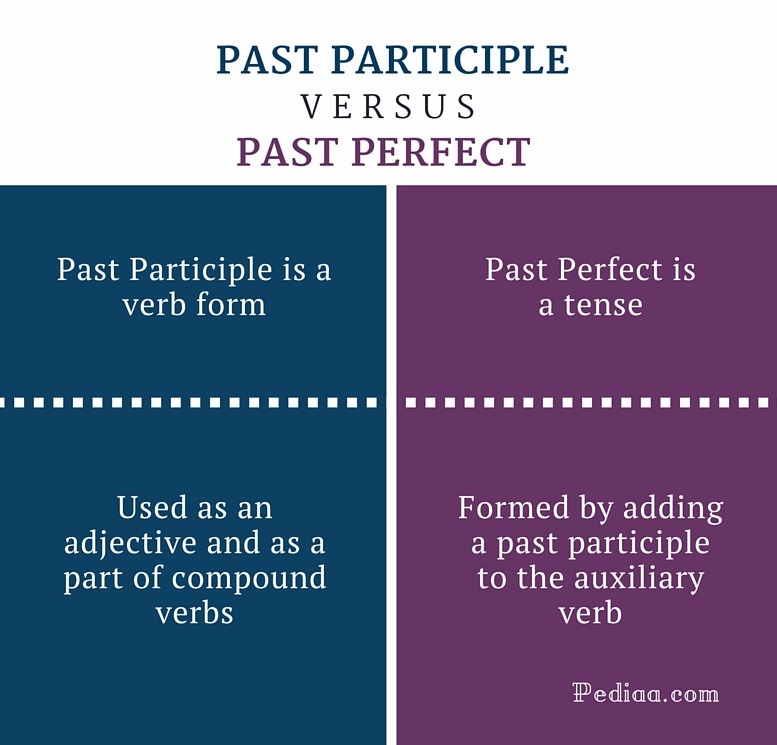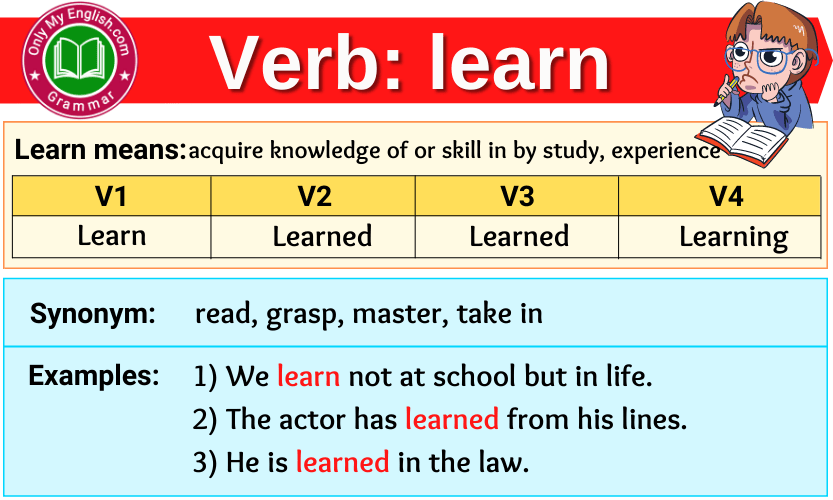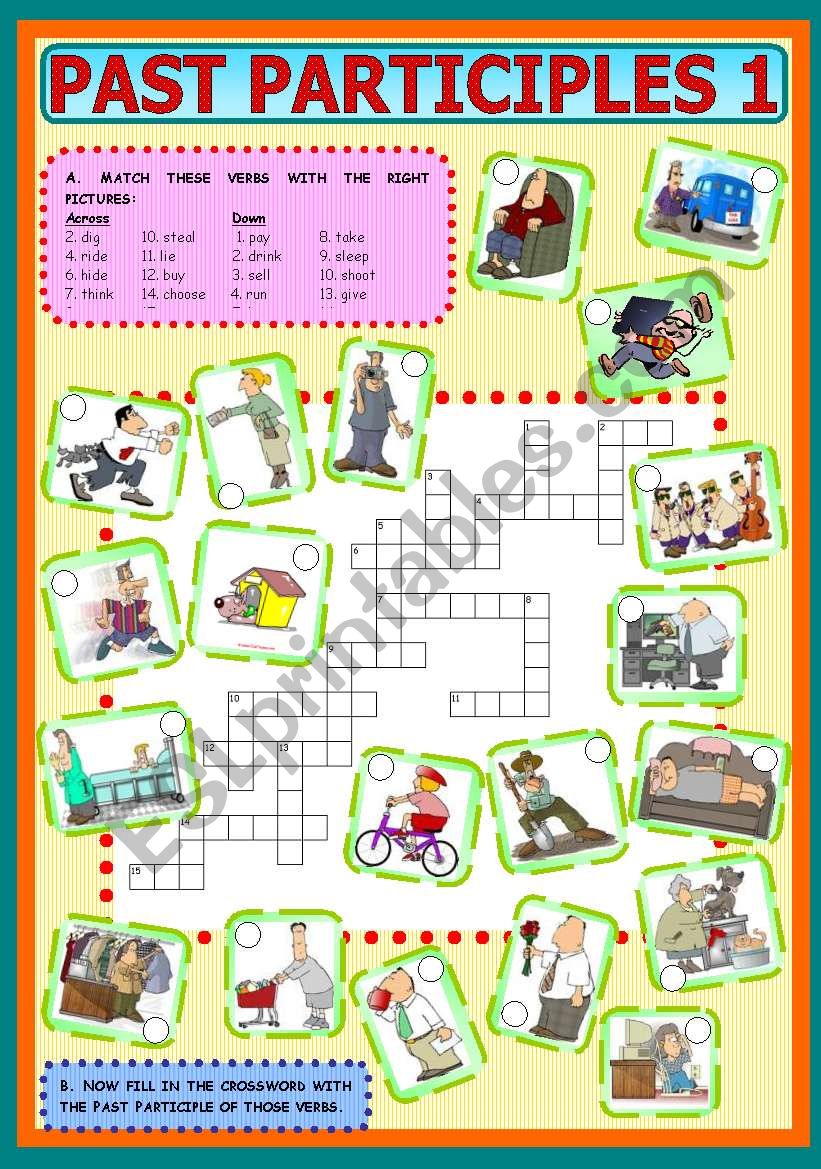
Participles What Is A Participle? Present & Past Participle • 7ESL
Most verbs have a past tense and past participle with -ed: worked played listened But many of the most frequent verbs are irregular: Irregular verbs Average Give it 1/5 Give it 2/5 Give it 3/5 Give it 4/5 Give it 5/5 Average: 4 (495 votes) ‹ Verb phrases Up Questions and negatives › Do you need to improve your English grammar?

List of Past Participle Grammar Syntax
Past Tense Of Learn, Past Participle Form of Learn, Learned Learnt V1 V2 V3 Table of Contents Past Tense of Learn Meaning Base Form Examples V2 Past Simple V3 Past Participle Past Tense of Learn We use the word ' learn ' very often in our daily life. In this lesson, we will examine the details of this widely used expression.

50 Examples of Present Tense, Past Tense and Past Participle English
Present Perfect Continuous Tense He/She/It has been learning. I have been learning. You/We/They have been learning. Simple Past Tense He/She/It learned or learnt (chiefly UK). I learned or learnt (chiefly UK). You/We/They learned or learnt (chiefly UK). Past Continuous Tense He/She/It was learning. I was learning. You/We/They were learning.

Past participle wordsearch 2
A past participle form of a verb can be used to form the present perfect verb tense ( have learned/learnt) or the past perfect verb tense ( had learned/learnt) or, sometimes, as an adjective. Here's an example of learned and learnt being used in present perfect form: I have learned/learnt many things from you.

List of irregular verbs in infinitive past simple and past participle
Past Partciple: learnt/learned Present Partciple: learning Third Person Singular: learns Definition: To gain or acquire knowledge or skill in a new subject or activity. Example (s): I've learned a lot about human nature since I read this book. I spent the winter learning how to start a business. Similar verbs

Learn Past Simple, Simple Past Tense of Learn Past Participle, V1 V2 V3
Learnt and learned are both used as the past participle and past tense of the verb to learn. Learned is the generally accepted way of spelling it in the United States and Canada, while the rest of the English-speaking world seems to prefer learnt for now. Why for now?

Difference Between Past Participle and Past Perfect Learn English
Examples of learned/learnt as a past participle: Origin of the word learn Learn more about verbs Sources Learned or learnt? What's the past tense of learn? The short answer is that technically both learnt and learned are correct past tenses of the verb learn.

Past Participle for Fly LamarrosGarrison
Past Participle learned or learnt Present Participle learning Present I learn you learn he/she/it learns we learn you learn they learn Present Continuous I am learning you are learning he/she/it is learning we are learning you are learning they are learning Present Perfect

Learn Verb Forms Past Tense, Past Participle & V1V2V3
From Middle English lerned, lernd, lernyd, equivalent to learn + -ed, which replaced the earlier lered (" taught "), from Old English (ġe)lǣred, past participle of lǣran (" to teach "). Learn formerly had the meaning "to teach", which is now found only in nonstandard speech, as well as its standard meaning of "to learn".

Search Past Simple in English, Simple Past Tense of Search, Past
Learned is the more common past tense and past participle of the verb learn.Learnt is a variant especially common outside North America.In British writing, for instance, it appears about once for every three instances of learned.In the U.S. and Canada, meanwhile, learnt appears only once for approximately every 500 instances of learned, and it's generally considered colloquial.

Past Tense Of Learn, Past Participle Form of Learn, Learned Learnt V1
The past tense and past participle of learn are: learn in past simple is learnt, learned, and past participle is learnt. learned. What is the past tense of learn? The past tense of the verb "learn" is "learnt", or "learned", and the past participle is "learnt" or "learned". Verb Tenses Past simple — learn in past simple learnt, learned (V2) .

Past Tense Verbs Games w/Past Participle Easel Digital Activities in
The past participle of this verb, 'to learn' is formed by adding 'ed' to the base of the word, in this case, 'learn' . So then you have the word learned. However, there is also another spelling which is learnt. Both forms are correct. It is just a matter of the usage in British English or American English but you should be safe with any of the two.

Past Participle Spanish Worksheet Pdf Master of Documents
The verb "to learn" means to acquire knowledge of, or skill in, something through study or experience. "To learn" is one of those verbs with both an irregular form and a regular form. As shown in the table, the past tense and the past participle can be written as either "learned" or "learnt."

English Detailed Regular Verbs, Infinitive, Past and Participle
Definition: To Learn Irregular verb: To Learn Verb conjugation: Learn - Learnt/Learned - Learnt/Learned Meaning of 'To Learn' To acquire knowledge Conjugation of verb 'Learn' Irregular Verbs Following a Similar Pattern Verbs like: Subscribe to Ad-Free Browsing Enjoy a seamless learning experience without interruptions from advertisements.

English Present, Past, Perfect Participles Definition and Examples Tabl
These are alternative forms of the past tense and past participle of the verb learn.Both are acceptable, but learned is often used in both British English and American English, while learnt is much more common in British English than in American English.. We learned the news at about three o'clock. They learnt the train times by heart.. There are a number of other verbs which follow the same.

IRREGULAR VERBS (Infinitive, Past Simple, Past Participle
This form is used to create the past participle tense, which is used to describe an action that has been completed and has continued relevance in the present. Here are some examples of how to use "learned" in the V3 form: I have learned a lot about cooking since I started watching cooking shows.